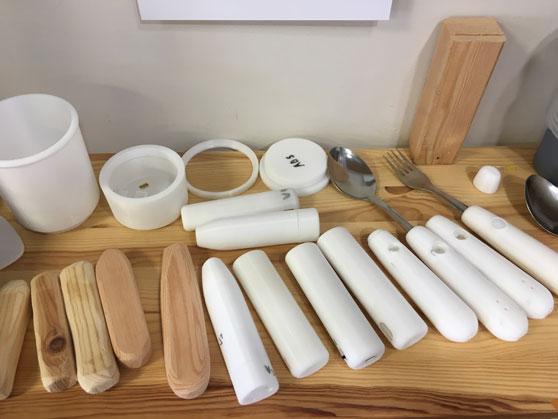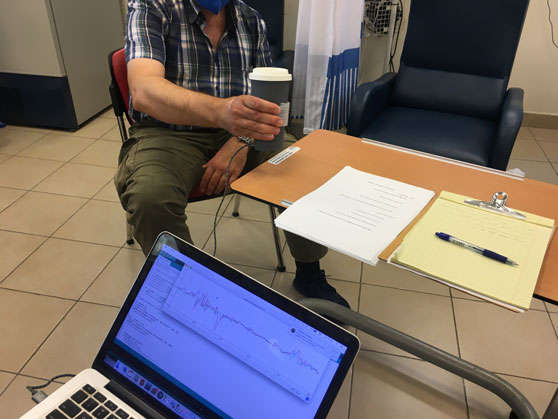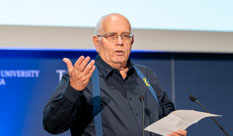More:
News & Stories
MADE Lab Helps Detect Essential Tremors
A fork, toothbrush and drinking glass with special sensors were developed at HIT's Medical Assistive Design and Engineering Laboratory (MADE) in order to collect data to help detect Essential Tremor in patients.

Detecting Essential Tremor is one of the most challenging and elusive tasks in medicine. Prof. Sharon Hasson, who heads the Center for Movement Disorders at Sheba Medical Center where people suffering from Essential Tremor are treated, approached the MADE Lab and set forward a challenge: help us take more accurate measurements from patients so we can better assess the situation.
MADE took up the challenge with vigor, and the end result: the development and design of tools for everyday use which contain sensors to collect the data required by the medical team to make the proper evaluation.
To date, after extensive ergonomic research, prototypes of a fork, cup and toothbrush were developed with sensors inserted into their grip handles. This conveniently and unobstrusively helps the data collection process. Prof. Hasson: "With the data recorded by these tools, it is possible to identify the patterns of Essential Tremor before and after administrating specific medications.”
 Yael Avni, who heads the MADE Laboratory at HIT, explains: "MADE is a multidisciplinary laboratory, a kind of “maker’s space” that includes academic staff and students from all faculties at HIT interested in Digital Medicine. Our close ties with hospitals and clinical partners allow us to develop their ideas and provide solutions, all the way up to the Proof of Concept stage. We are the only such Lab providing a multidisciplinary service of this kind", says Avni.
Yael Avni, who heads the MADE Laboratory at HIT, explains: "MADE is a multidisciplinary laboratory, a kind of “maker’s space” that includes academic staff and students from all faculties at HIT interested in Digital Medicine. Our close ties with hospitals and clinical partners allow us to develop their ideas and provide solutions, all the way up to the Proof of Concept stage. We are the only such Lab providing a multidisciplinary service of this kind", says Avni.

At this stage, safety approvals for the tools and the approval of the Helsinki Committee are awaited, in order to begin the experimental phase.
Posted: 12/01/2022
- News & Events
New Collaboration with Sheba Medical Center will qualify nurses to work in a digital environment.
Collaboration between HIT Holon Institute of Technology, the teaching authority of the Sheba Medical Center, and the Sheba-BEYOND virtual hospital will allow training nurses in Israel and around the world to work in a digital...



 Additional programs
Additional programs
